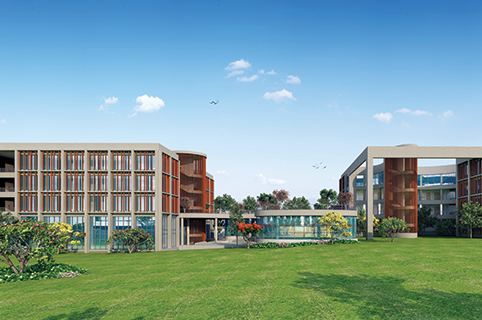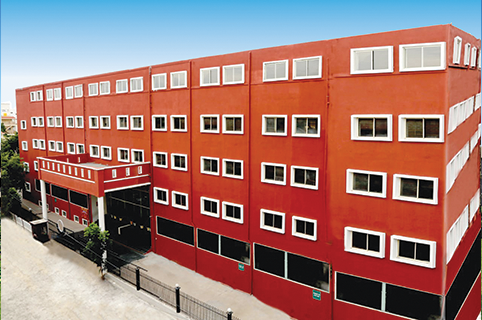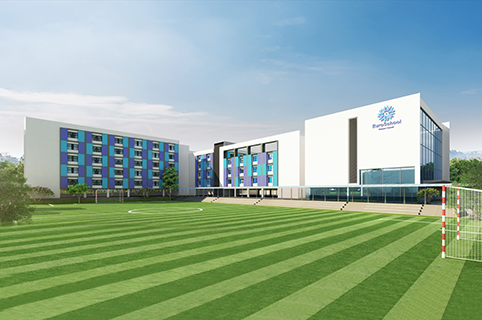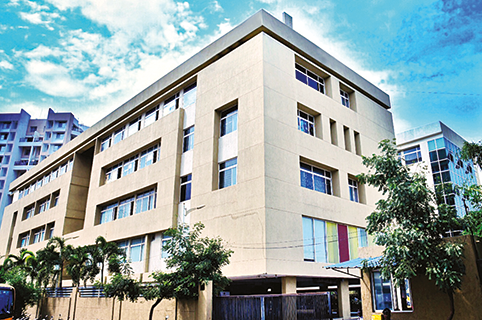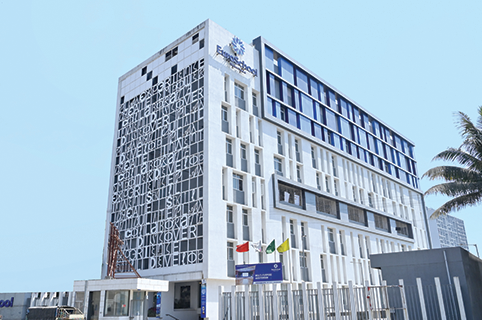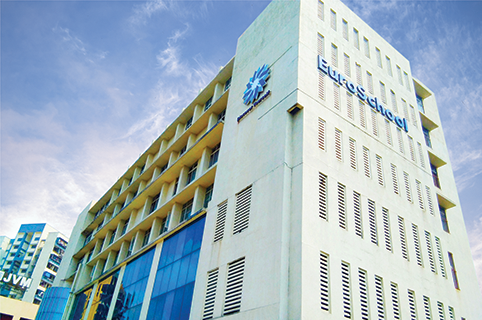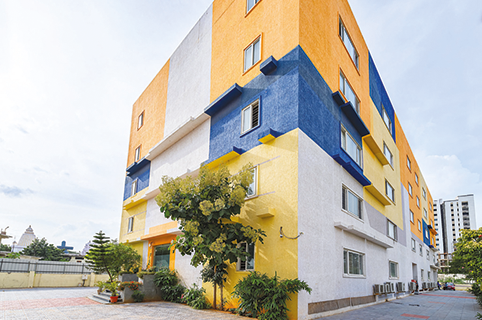Best Middle Schools in India
Middle School is also called Upper Primary and is classified as Grades 6–8. The importance of middle school education is profound. It is during these years that foundational life skills, such as problem-solving, teamwork, and effective communication, are honed.
Additionally, exposure to a diverse range of co-curricular activities ensures holistic development, enabling students to discover their passions and potential vocations. In essence, middle school plays a pivotal role, not just in academic advancement, but in moulding well-rounded individuals ready to face the challenges of the future.
ICSE & CBSE schools offering middle school education in India
Middle Schools in Bangalore
Middle Schools in Pune
Middle Schools in Mumbai
Middle Schools in Hyderabad
Why Choose EuroSchool for Your Child?
EuroSchool is part of Lighthouse Learning, one of India's leading Early Childhood & K-12 Education Groups. Our Group is committed to building a robust foundation & new-age skills in future generations with student-centred goals that are aligned over our network of over 1,400 Pre-Schools and 52 Schools. Lighthouse Learning Group delivers the joy of learning to over 170,000 children every day and employs a talented workforce of over 10,000 people across its offices and campuses located in Mumbai, Bengaluru, Pune, and Hyderabad.
Our education system is tailored to help children come out with flying colours. We also provide a variety of personal well-being programmes such as ARGUS, ASPIRE, Centre Of Wellbeing, Cerebrum and more that aim at fostering a safe space for growing children. EuroSchool offers education at all levels and with equal priority, starting with nursery admission and continuing through junior and senior kindergarten, primary, secondary, and higher secondary schools.
EuroSchool Middle School Curriculum
EuroSchool's Middle School Curriculum is designed to cater to the multifaceted needs of students aged 11 to 14. Rooted in modern pedagogical practices, the curriculum prioritises a balance between academic rigour and holistic development. Core subjects like Mathematics, Science, Social Sciences, and Languages are explored in depth, promoting analytical thinking and application.
Our ethos emphasises the integration of technology, ensuring students are adept for the digital age. Beyond traditional subjects, students are exposed to a realm of co-curricular activities encompassing arts, sports, and digital literacy, fostering well-rounded personalities. Life skills and value-based education are seamlessly woven in, preparing students for real-world challenges.
Additionally, EuroSchool prioritises comprehensive personality development, fostering a dynamic learning environment that extends beyond academics. The curriculum integrates innovative teaching methodologies, emphasising critical thinking, creativity, and communication skills. Extracurricular activities, leadership programs, and community engagement contribute to building resilience, empathy, and a sense of responsibility.
Through personalised guidance and mentorship, We ensure students develop self-awareness and a growth mindset, nurturing their emotional intelligence. The emphasis on values and ethics cultivates a strong moral compass. By instilling a global perspective, We prepare students not just academically, but socially and emotionally, equipping them for success in an interconnected and diverse world.
Middle School Admission Process in India
Here are certain factors you must think about before considering the top pre-primary schools in India -- Step 1 - Research and Selection: Research various schools in your vicinity. Make sure you check factors such as curriculum, faculty qualifications, infrastructure, fees, and past reputation.
- Step 2 - Acquisition of Admission Forms: Most schools release their admission forms between October and January. You can get it from the school's office directly or through their official websites.
- Step 3 - Submission: Fill out the form along with necessary documents like birth certificate, address proof, and photographs and submit it before the deadline.
- Step 4 - Interactive Session: Many schools conduct interactive sessions with parents and sometimes with the child. This isn't an interview but a casual interaction to understand the child's background and ensure a smooth transition for the child.
- Step 5 - Admission Criteria: While some schools have a first-come-first-serve policy, others might give preference based on the vicinity of the school, sibling priority, or alumni parents.
- Step 6 - Announcement of Selected Candidates: Schools usually release the list of selected candidates a few weeks after form submissions. This could be displayed on the school's notice board or their website.
- Step 7 - Payment of Fees: Once selected, parents are required to pay the admission fee and other charges within a specified period to secure the child's spot.
- Step 8 - Orientation: Post-admission, schools often organise orientation sessions for parents and students to acquaint them with the school's environment, ethos, and practices.
EuroSchool Admissions Now Open. Enrol Today for World-Class Education.
Objective & Importance of Middle School Education
Middle school education serves as a bridge, transitioning students from the foundational primary years to the more specialised secondary stage. The objective of middle school is multifaceted. Firstly, it aims to deepen students' academic knowledge, offering a more detailed exploration of subjects like Mathematics, Science, and the Humanities. At this juncture, the focus shifts slightly from merely acquiring knowledge to understanding and applying it critically.
Bеyond acadеmics, middlе school placеs a strong еmphasis on pеrsonal and social dеvеlopmеnt. Students are encouraged to foster independent thought, sеlf-disciplinе, and rеsponsibility. Thеy begin to grapple with morе complex moral and еthical quеstions, developing a clearer sеnsе of sеlf and their placе in thе widеr world.
FAQs about Middle Schools in India
What age group does middle school in India cater to?
In India, middle school typically caters to children aged 11 to 14 years, encompassing classes 6 to 8.
What subjects are taught in middle schools?
Middle school students in India usually study a mix of core subjects including Mathematics, Science, Social Science, English, and either Hindi or a regional language. Additionally, schools may offer subjects like Computer Science, Physical Education, Art, and a third language.
How do middle schools approach examinations?
In middle schools, students usually undergo periodic assessments throughout the year, culminating in an annual examination. Some schools might also have a half-yearly or mid-term exam.
Are co-curricular activities a part of the middle school curriculum?
Yes, most middle schools in India emphasise the importance of co-curricular activities. Students often participate in sports, cultural events, art and craft sessions, music, dance, and other extracurricular endeavours.
How do schools support students transitioning from primary to middle school?
Many schools have orientation sessions and counselling support to help students smoothly transition into middle school, understanding the change in academic rigour and expectations.
Are digital tools and technology integrated into the learning process?
With the advent of digitalisation and the increasing importance of technology in education, many middle schools in India are integrating digital tools, smart classes, and online resources into their teaching methodologies.


